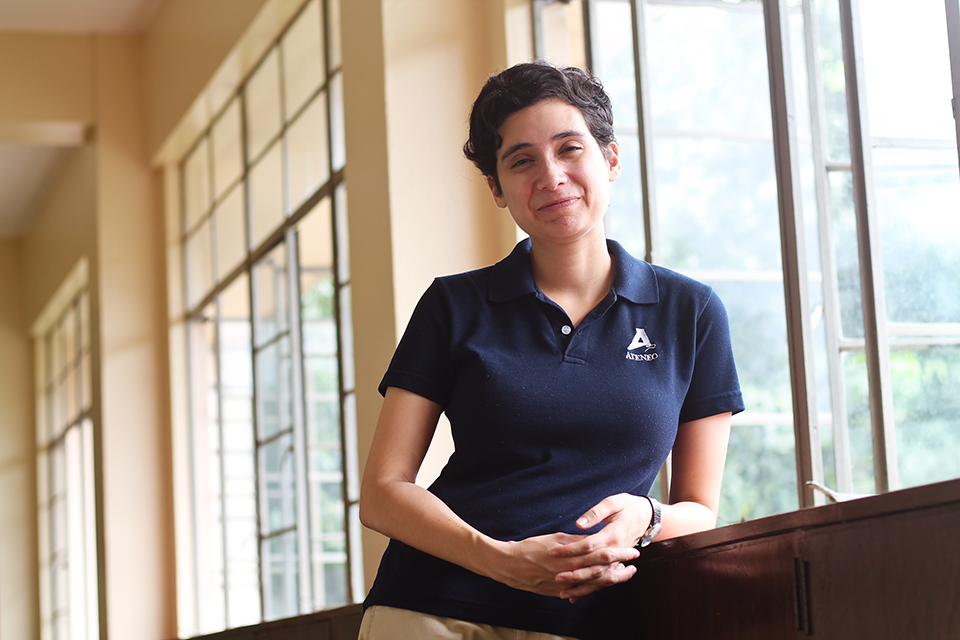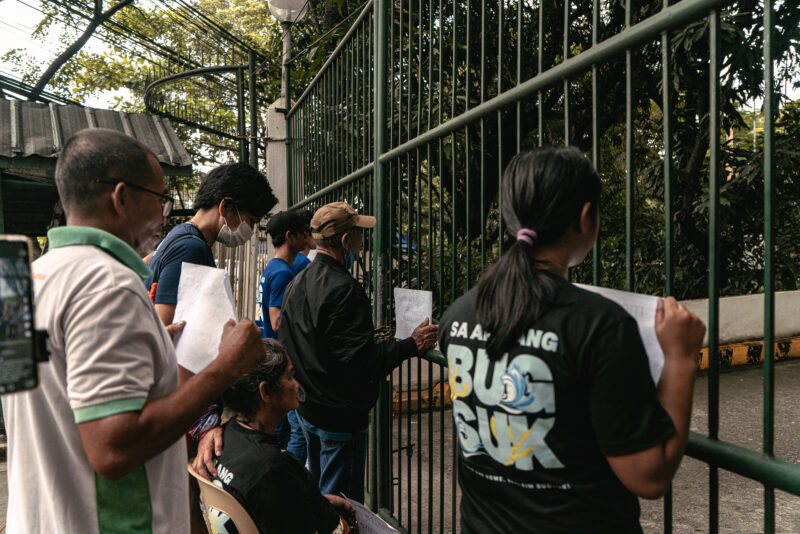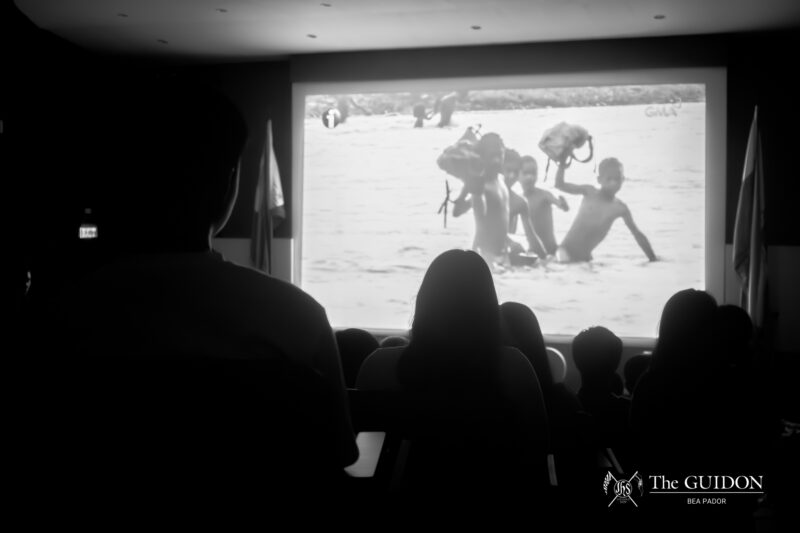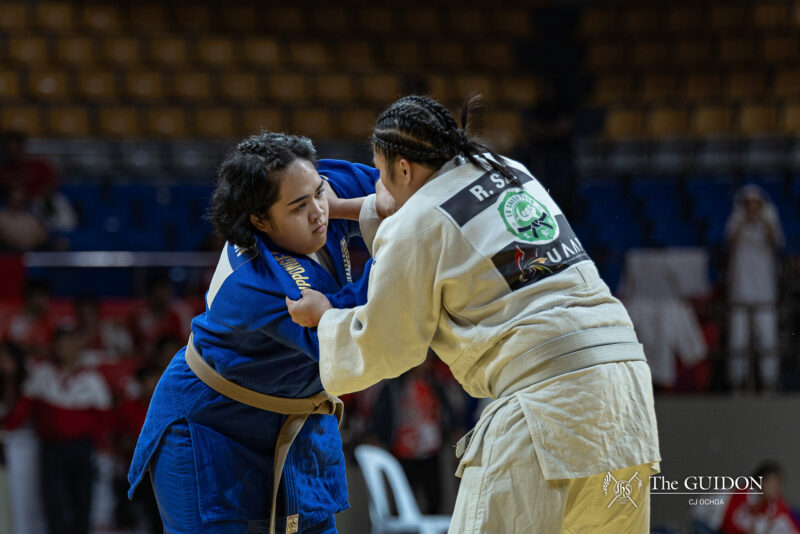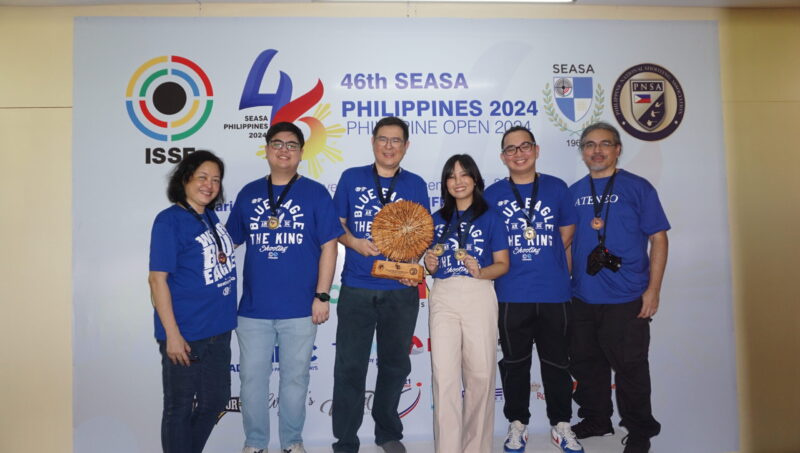The first half of a writing workshop has just ended and Dr. Laurel Fantauzzo, guest lecturer at the English Department and the Fine Arts Program, lets her Creative Nonfiction Writing class off for a brief snack break. Instead of trickling out of the classroom, her students cheer as a chocolate cake is brought out. It’s been appropriately dubbed the “PalanCake,” a congratulatory gift for her winning second place in the Essay category of the 2013 Carlos Palanca Memorial Awards.
She thanks everybody and invites them to help themselves to some cake. There’s just one problem: Nobody thought to bring any utensils. Unfazed, she e passes around plastic spoons and forks procured from the Fine Arts Department. Anyone can be enthusiastic about sharing food, but Fantauzzo takes it a step further when she serves the cake on pad paper.
Adaptability seems to come second nature to this California-born Filipino-Italian, who has also lived in Brooklyn, Iowa and now, Manila. Fantauzzo’s multicultural upbringing has shaped her as a writer and as a person—and she’ll surprise you in more ways than one.
Growing up “Italiapina”
Fantauzzo, the very image of an all-American woman with her wide eyes, prominent nose and porcelain skin, stands out in a sea of Filipino locals. So it comes as a surprise to many when they find that is actually, as her friends from California call her, an “Italiapina.”
“I think I exist in an in-between space that makes people kind of uneasy,” Fantauzzo says, referring to the tension between her Filipino-Italian heritage and her American upbringing. Though she was raised in Southern California and considers herself culturally American, growing up surrounded by her Filipino relatives was not lost on her. “They always had good, unhealthy food on the counter. They always had doughnuts and adobo,” she recalls fondly.
In this in-between place, she recognizes her Filipino heritage with her love for pork, affinity for dark humor and her infamous penny-pinching (Her friends laugh at her refusal to buy wine glasses. “I have a mug. You can drink wine from there.”).
Fantauzzo moved to the Philippines in May of this year to gain more teaching experience at the university level. She arrived a few days after her graduation from the University of Iowa with a Master of Fine Arts degree in non-fiction. Her first visit to the country, however, was at the age of 12.
“My mom dragged me here and I did not want to come here,” she confesses. The infamous Manila traffic definitely left an impression on her: “There were buses that are like slanted diagonally and they’re still moving on the street!”
Apparently this wasn’t enough to keep her from returning, as she’s been visiting the country regularly for the last four years. Still, her relatives were surprised when she made the decision to move here for good; they had migrated to the United States precisely to get away from the lives they were made to lead in the Philippines. “It was awful because they were poor and there was no way they could advance in society… there was no way for them to have social mobility the way they could in the States.”
She explains that it was the opportunity to tell stories rooted in Philippine life pulled her in. “I figured there was nowhere else in the world that I could have that life of teaching and writing about this place.”
“I don’t feel like I fully belong in the US, but here [in the Philippines], somehow, not belonging feels more honest.”
Dayuhan
“I don’t feel like I fully belong in the US,” shares Fantauzzo, whose multi-cultural upbringing has made her uncomfortable in her own home. “But here [in the Philippines], somehow, not belonging feels more honest.”
Fantauzzo explains that the displacement she feels in the Philippines makes a lot more sense to her because she was raised elsewhere. Still, the way locals treat foreigners differently—be it subconsciously or not—doesn’t help the situation.
As she described in her Palanca-winning essay “Under My Invisible Umbrella,” her attempts at becoming a local are continually impeded by her skin color. “He was holding the umbrella above my whiteness,” she writes, telling a story of a guard who chose to shelter her—but not her brown-skinned Filipino-American classmates—from the rain. She explains that the guard saw her white skin as a representation of her wealth and higher social standing.
Aside from the alienation she experiences due to skin color, maneuvering through the Philippines continues to prove a challenge, what with the complex public transportation system and her limited knowledge of the language. When asked about her Filipino, she awkwardly replies “Pangit!” with her signature American twang.
Though she hasn’t been able to practice lately, she has picked up words from her friends. “My favorite untranslatable word is ‘torpe.’ I love that concept!” she says, laughing. She also particularly likes the expression “haba ng hair” which is often understood to express a bragging attitude. “It’s a very dynamic language with a lot of humor and defiance.”
Racial prejudice seems to be the general response of Filipinos towards foreigners, but the same can also be said of the other side. “Yes, there’s a very deep strain of racism still in America,” she confesses. “If you look brown and Asian, you’re just treated differently in overt ways.” It’s largely because of this racism that Fantauzzo has been able to identify with her Filipino mother’s country.
She goes on to say that the biggest issue with regard to how Americans look at Filipinos is invisibility. Fantauzzo recalls, “In Iowa, I was in a performance theatre monologue class where you write your own story and do storytelling. I wrote about Manila and one student said, ‘What’s Manila?’ not, ‘Where’s Manila?’”
“I think a lot of the problem is that there’s this enormous blind spot when it comes to the Philippines in spite of—or maybe because of—America’s complicated relationship with the country,” she explains.
Outsider looking in
Fantauzzo takes out a pack of tissues from her backpack to wipe her nose: For the past few weeks, she has been having bouts of mystery viruses—three in total—that have a knack for striking on Tuesdays. In spite of her unexplainable susceptibility to illness in the Philippines, she is determined to soldier on and stay here for the next two years, to finish book projects and to continue teaching classes in the Ateneo.
Though a self-confessed outsider, Fantauzzo recognizes an urgency to address pressing matters in the country such as class violence, racial differences and historical wounds. “If you have the resources and you have the time, there’s too much to write about here,” she says of the country. The GMA News Online archive of her works include insightful reflections on topics ranging from Cinemalaya, food and her experiences of living in the Philippines, to name a few.
Fantauzzo isn’t confident enough to call herself a Filipina, but she sympathizes with the plight of the Filipino nation. It is obvious to her that suffering continues to run rampant in society. “You know, any society where 40 families own 80% of the GDP is not a healthy society,” she states.
On the other side of the coin, Fantauzzo’s experiences have made her notice the tension between how the poor are negatively perceived and how they really are. “I try to have a realistic view of the Philippines but not discredit it so much that I cannot see everybody as human,” she explains.
She recalls a particularly pleasant encounter with a tricycle driver, in whose vehicle she had dropped her wallet. The driver managed to contact her and return her wallet; she gave him a reward and some clothes for his wife. “I have him as ‘Honest Trike Driver’ in my phone,” she smiles.
This is where she sees herself in the Philippine context. “My role as a writer is to ask and plant uncomfortable questions even if I don’t have the answers.”
Fantauzzo embraces the ambiguity of her racial identity, seeing it not as a point of confusion but a point of certainty that allows her a unique perspective of the world and of the role she plays in it.
For now, her role is rooted here in the Philippines. “I was raised elsewhere, but I care about this place. I care about the students of this place. I care about the stories here. So I’m here to teach and to write.”

